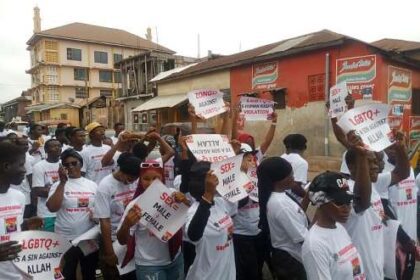In a groundbreaking move, Professor Nicholas Awortwi, the esteemed Director of the Institute of Local Government Studies (ILGS), has fervently advocated for a paradigm shift in governmental approach towards Local Economic Development (LED). He contends that the prevailing notion of “it is not the business of government to do business” has inadvertently stifled the growth of local economies and hindered job creation at the grassroots level.
Challenging the Enabling Environment Mantra
Awortwi astutely challenges the conventional wisdom that governments, both central and local, need only facilitate an enabling environment for businesses and jobs to flourish organically. He argues that if this were the case, many African nations, including Ghana, wouldn’t grapple with the persistent challenges in business development and job creation. This sentiment was expressed unequivocally at the LED Investment Fair, a pivotal event organized by ILGS under the theme, “Building Vibrant Local Economies through LED Products.”
A Showcase of Local Ingenuity
This event saw the participation of 18 Metropolitan Municipal District Assemblies (MMDA), which showcased an array of locally-produced goods ranging from poultry, organic vegetables, and fish to apparel. It was a powerful testament to the untapped potential that exists within these local communities.
The Call for Next Generation Local Economic Development (NGLED)
Awortwi emphatically calls for the adoption of Next Generation Local Economic Development (NGLED), an innovative ideology that urges local governments to go beyond the creation of an enabling environment. NGLED proposes direct investments and technological support in productive sectors as a means to galvanize economic growth, foster job creation, and elevate income levels within communities.
A Minister’s Clarion Call
Supporting this clarion call, Mr. Daniel Botwe, the Minister of Local Government and Rural Development, underscores the pivotal role that income elevation plays in assessing the impact of LED initiatives. He rightly emphasizes that at the core of economic development are the individuals it serves; therefore, an upswing in the income of local constituents is paramount.
Curbing Rural Urban Migration Through LED
Botwe also highlights the critical connection between economic viability and the establishment of Metropolitan Municipal District Assemblies (MMDA). He urges local government authorities to prioritize LED, recognizing it as a potent tool to mitigate rural-urban migration, a persistent issue plaguing the nation.
The Imperative of Collaborative Efforts
Furthermore, he advocates for seamless collaboration among key agencies in the realms of rural development and food processing. Such partnerships, he argues, are instrumental in transforming products under the LED initiative into commercially viable ventures.
Bolstering Local Resilience
In a broader context, Mr. Dennis Aboagye, Director of Local Government Development at the Office of the President, underscores the pivotal role of LED initiatives in fortifying the local economy against both external and internal emergencies. These initiatives not only serve as a buffer but also contribute significantly to the reduction of infrastructure costs borne by MMDAs.
In conclusion, the clarion call from Professor Awortwi and his colleagues resounds with an urgency for a revolutionary approach to Local Economic Development. The time is ripe for governments to shed old paradigms and invest directly in the economic and social fabric of their local communities. Through NGLED, we have the opportunity to usher in a new era of prosperity, job creation, and enhanced livelihoods for all citizens. It’s a transformative vision that holds the promise of a brighter, more vibrant future for local economies across the board.










